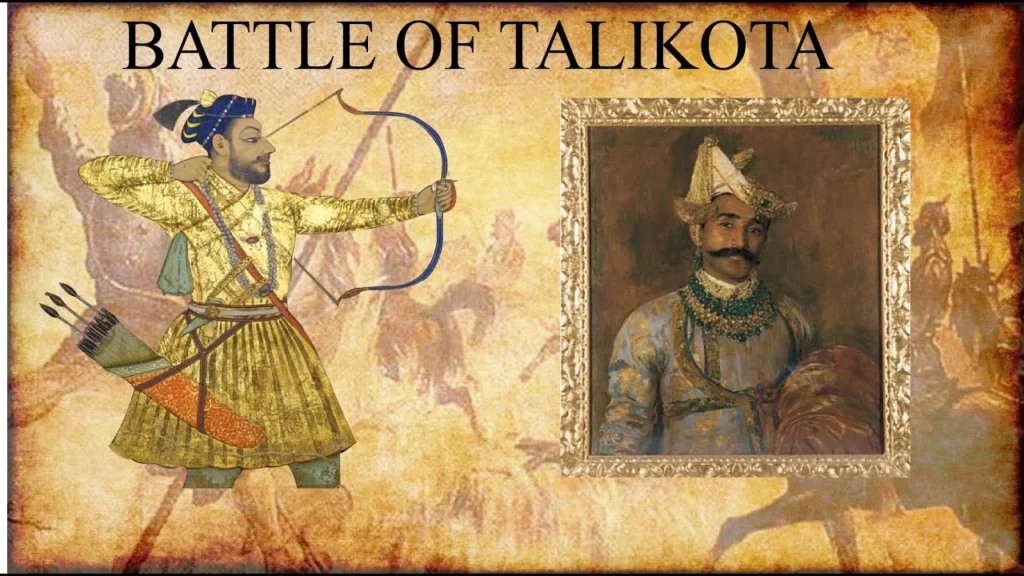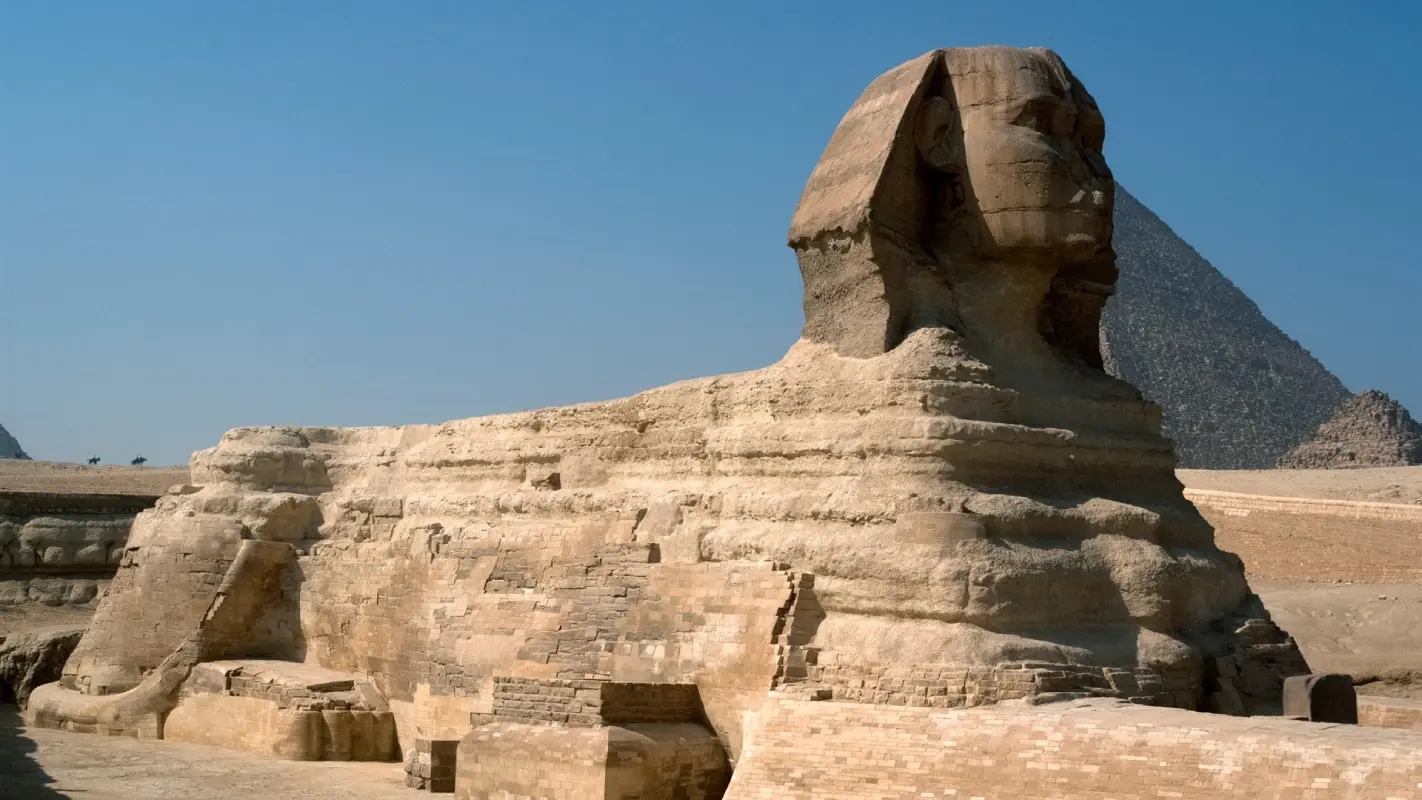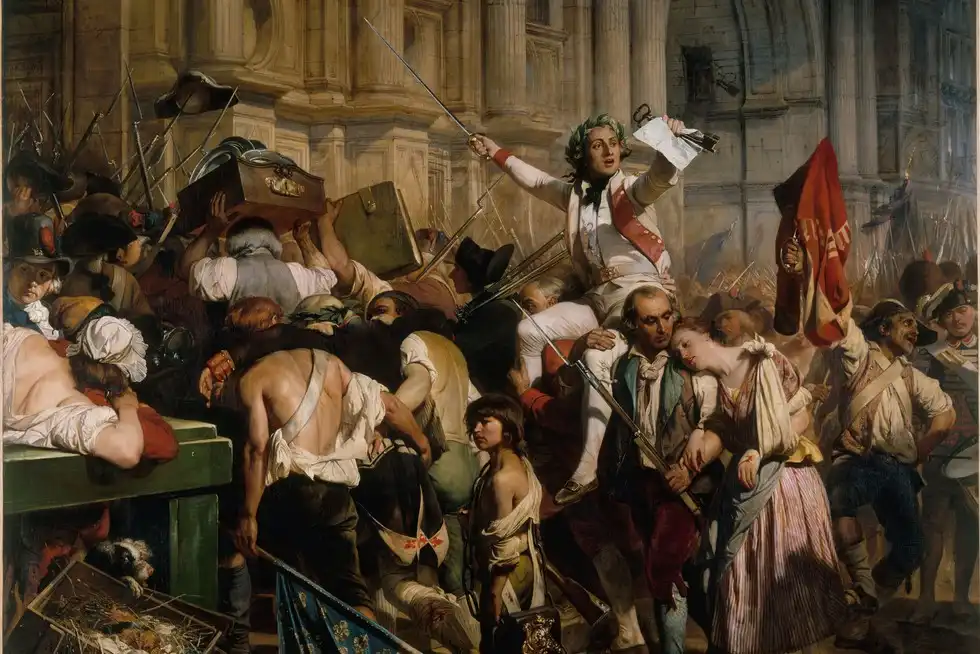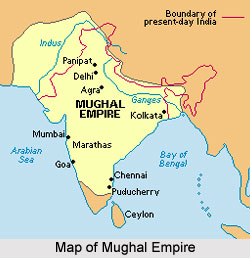The Talikota War: The Talikota War, also known as the Battle of Rakshasa-Tangadi, was a significant event in South Indian history. It was fought on January 26, 1565, between the Vijayanagara Empire, led by King Rama Raya, and the Deccan Sultanates, consisting of five Islamic kingdoms. The war resulted in the defeat of the Vijayanagara Empire and marked the end of its dominance in South India.
Background of the Talikota War

The Vijayanagara Empire was a powerful Hindu kingdom that ruled over South India from the 14th to the 16th century. It was founded by Harihara I and his brother Bukka Raya I in 1336 and was ruled by four dynasties: Sangama, Saluva, Tuluva, and Aravidu. The empire reached its zenith under King Krishnadevaraya (1509-1529) and became a cultural, commercial, and military powerhouse. It had a vast army, a strong navy, and a prosperous economy based on agriculture, trade, and handicrafts.
However, the Vijayanagara Empire faced internal and external challenges in the 16th century. Its rulers became weak and corrupt, and the nobles and ministers engaged in factionalism and intrigue. The empire also faced external threats from the Deccan Sultanates, which were Islamic kingdoms that had emerged in the 14th century after the decline of the Bahmani Sultanate. The Deccan Sultanates included the Adil Shahi Sultanate of Bijapur, the Qutb Shahi Sultanate of Golconda, the Imad Shahi Sultanate of Berar, the Nizam Shahi Sultanate of Ahmednagar, and the Barid Shahi Sultanate of Bidar. These sultanates were united by religion and language and were hostile to the Vijayanagara Empire, which they saw as a symbol of Hindu hegemony.
Causes of the Talikota War
The Talikota War was precipitated by a series of events that led to the breakdown of relations between the Vijayanagara Empire and the Deccan Sultanates. The immediate cause of the war was a dispute over the succession to the throne of the Adil Shahi Sultanate of Bijapur. The reigning sultan, Ali Adil Shah I, died in 1557, and his son Ibrahim Adil Shah II succeeded him. However, Ibrahim’s half-brother, Ismail Adil Shah, claimed the throne and fled to the Vijayanagara Empire for support. Rama Raya, who was the regent of the Vijayanagara Empire at that time, welcomed Ismail and promised to help him regain the Bijapur throne.
However, Rama Raya’s actions angered Ibrahim Adil Shah II, who saw it as interference in his internal affairs. Ibrahim formed an alliance with the other Deccan Sultanates and launched a joint invasion of the Vijayanagara Empire in 1564. The Vijayanagara army, led by Rama Raya, initially repelled the invaders and even captured the Qutb Shahi Sultan, but the tide turned against them when the Adil Shahi Sultan and the Nizam Shahi Sultan arrived with fresh troops. The Vijayanagara army was caught off guard and suffered a crushing defeat at the Battle of Talikota.
The Talikota War had far-reaching consequences for South India. It marked the end of the Vijayanagara Empire’s supremacy and paved the way for the rise of the Deccan Sultanates.
Read Also: Panipat War
![]()






One thought on “Talikota War”